OUR MISSION:
Planned Acts of Kindness works to unite people from all walks of life by giving them shared goals and objectives that work for the betterment of the planet.
OUR VISION:
Our Vision is to have millions of people around the world working together as one to help solve the problems that confront life on our planet.
“TIPPING POINTS” STAT SHEET
A sampling of the many factors that can irrevocably change the course of the life on the planet if we don’t actively work to reverse the trajectory of the past 100+ years:
• Climate Change
• Terrorism
• War
• Pandemic
• Overpopulation
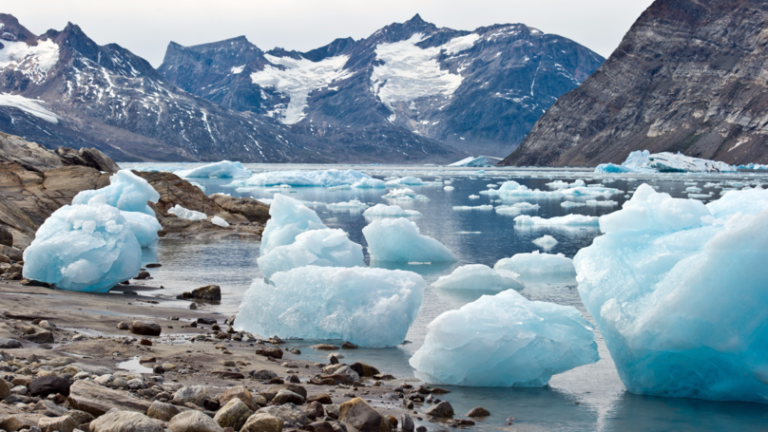
Climate Change: People are losing their homes and businesses, people are dying, and the emotional and financial impact is not only devastating individuals and families, but also entire communities.
- 14 of the hottest annual temperatures ever recorded have occurred during the last 16 years. l cyclones with higher wind speeds.
- Global temperatures began to be systematically recorded 136 years ago. 2016 finished in first place as the hottest year on record.
- This decade is shaping up to be even hotter. And, as a consequence, natural disasters are occurring more frequently, causing destruction and loss of life around the globe.
- September Arctic sea ice is declining at a rate of 13.3 percent per decade.
- 97% of researchers believe global warming is happening, and 82% agree that it’s strongly linked to human behavior.
- Along the U.S. coastline, flooding is now 300% to 900% more frequent than it was 50 years ago.
- The actions of humans have caused extinctions of plants and animals for hundreds of years. Now, global warming is taking place 10 times faster than any time in the past 65 million years. Plants and animals will face mass extermination as they fail to adjust.
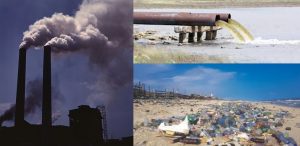

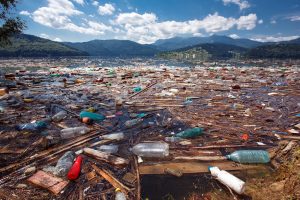

Pollution:
- More than 3 million kids under the age of 5 years die every year due to environmental factors like pollution.
- Pollution is one of the biggest killers, affecting more than 100 million worldwide.
- More than 1 billion people worldwide don’t have access to safe drinking water.
- Pollution kills more than 1 million seabirds and 100 million mammals every year.
- Oceans are becoming more acidic due to greenhouse emissions from fossil fuel which in turn isharming ocean life and global weather.
Air Pollution:
• 65% of the deaths in Asia and 25% deaths in India are due to air pollution.
• Outdoor air pollution causes more than 3 million deaths annually and suggested that the figure could double by 2050.
• More than 5.5 million people die prematurely every year due to household and outdoor air pollution.
• Chronic obstructive respiratory disease (COPD) that develop due to indoor air pollution is responsible for the death of more than 1 million people every year.
• Governments worldwide need to adopt new energy and air quality policies with an estimated cost of about $4.7 trillion. This may cut air pollution related deaths by more than 3 million deaths per year.
Land Pollution:
• Americans are only 5% of the world population but produce 30% of the waste globally.
• The average American produces 4.5 pounds of garbage per day.
• In China, 2 million miles of land has been destroyed because of solid waste.
• 80% of the world’s forests have been destroyed already, and in South Africa 90% of the tropical forest cover has been demolished.
• Americans buy more than 29 million bottles of water every year. Only 13% of these bottles are recycled every year.
Water Pollution:
• The garbage dumped in the ocean every year is roughly around 14 billion pounds. Plastic is the major constituent.
• Over 1.2 trillion gallons of untreated sewage, groundwater, and industrial waste are discharged into U.S. waters annually.
• The U.N. estimates that by 2025, forty-eight nations, with combined populations of 2.8 billion, will face freshwater scarcity.
• According to the World Health Organization, in developing nations 3.2 million children under the age of five die each year as a result of unsafe drinking water and poor sanitation.
• Every 20 seconds, a child dies from a water-related disease. Children in polluted environments often carry about 1,000 parasitic worms in their bodies at any time.
• There are more around 73 various kinds of pesticides in the groundwater, which is used as drinking water.
• More than 100 pesticides in any medium — air, water or soil — can cause birth defects, gene mutation and cancer.
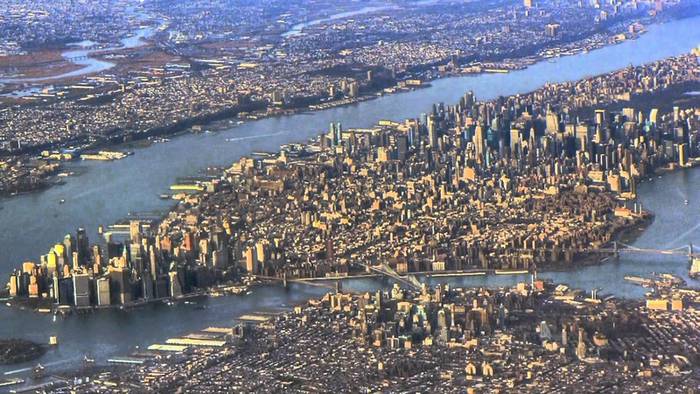
Overpopulation:
- Overpopulation is a crisis that cannot be averted. Between 1999 and 2011, global population increased by a billion people. Most of this population increase took place in developing nations where resources are already limited.
- The world population is currently growing at a rate of around 1.11% annually. The current average population change is estimated to be at around 80 million per year.
- Recent reports show that about 783 million people, or about 10% of the world population, are lacking access to quality drinking water.
- Every twenty minutes, the human population grows by over 3,000 people. That’s the same amount of time that it takes for another plant or animal species to become entirely extinct.
- In the 20th century alone, the worldwide human population has grown from 1.65 billion to 6 billion. Meanwhile, three species are going extinct every hour. 30,000 species per year.
- Since 1970, the U.S. population has added more than 100 million residents, about a 50 percent growth rate in fewer than 40 years.
- In the US, there are more than 1.43 million unplanned births happening every year.

Pandemic:
- Since the first local case of Zika virus was confirmed in Brazil in May 2015, health officials estimate between 440,000 and 1.3 million people have contracted the virus.
- When the global population was 450 million in the 1340s, estimates are as many as 200 million people perished from the Bubonic Plague.
- During the 1918 flu pandemic, 100 million people were estimated to be killed. Juveniles, elderly and young adults were forced to spend their last days in overcrowded medical camps and hospitals where their deaths were prolonged and painful.
- The 2003 SARS epidemic, which killed fewer than 800 people, cost the global economy $54 billion.
- June 13, 2015. The Ebola virus spread to more than 27,000 people across ten countries violently killing 11,100 people as their organs rapidly liquefied. Despite the high number of infections, the spread of Ebola remains technically an outbreak.
- The Ebola outbreak killed more than 5,000 people before the global community took action. If we aren’t ready for an outbreak, we most definitely are not ready for a pandemic. Now, two years later, we still don’t have the answers to how it started or how to cure it.
- The worldwide pharmaceutical market is a $1 trillion plus industry. Vaccines make up only 3% of it.
- The financial toll from a severe flu pandemic could hit $4 trillion.
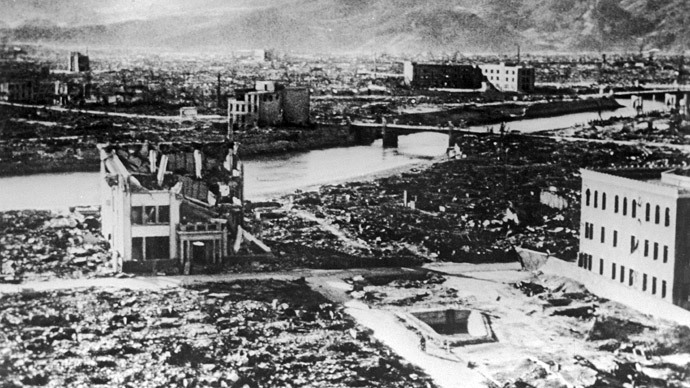
War:
- Over 500,000,000 people have died as a direct result of war violence.
- The detonation of just one “small” nuclear weapon would annihilate a 100,000 people in the blink of an eye and condemn tens of thousands to the pain and agony of death by radiation poisoning.
- The effect of a large thermonuclear weapon detonated over a major urban city would wipe out millions of people in an instant.
- In the event of a nuclear war, 90% of the surviving world’s population would likely die from starvation as the world’s food crops perish due to climate change.
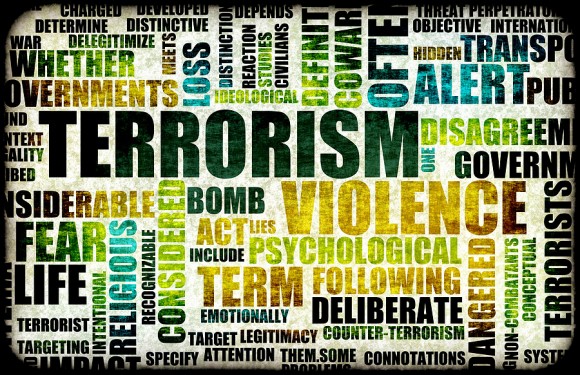
Terrorism:
- The toll of terrorism around the globe has jumped 800% in the past five years.
- Nearly 30,000 people per year have been killed by terrorists since 2010. As time progresses, the number of people murdered increases. Terrorists are improving their use of tech and finding new ways to recruit and kill more and more people.
- In 2015, a total of 11,774 terrorist attacks occurred worldwide killing 28,300 and injuring more than 35,300 people.
- According to professors’ Clauset and Woodard, the certainty of a terrorist attack with a death toll greater than 9/11 is at 95%.
- Families and communities have been ripped apart and devastated because of the because of the devastation left behind by terrorists. In 2015 alone, the number of terrorist kidnappings and hostage-takings increased to more than 12,100.
















